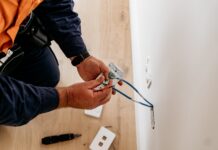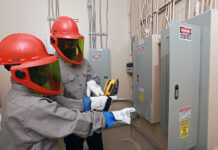
With the advancement of technology, people nowadays depend on electrical appliances for their comfortable living. Some electrical appliances at home, such as lights, fans, TVs, computers, ACs, refrigerators, etc., need to stay on all the time. Unfortunately, improper or careless use of these gadgets sometimes results in electrical emergencies like an electrical fire.
In recent years, a significant number of domestic fires have been caused by electrical fires. Thus, it has become a great concern for people all over the world.
To mitigate the risks of fire hazards and save lives and property, you need to understand what are the most common causes that lead to fires.
If you want to keep yourself away from this unfortunate situation of fire accidents, you also need to become aware of how to prevent such fires.
Here are the six common causes of electrical fires.
1. Faulty Outlets
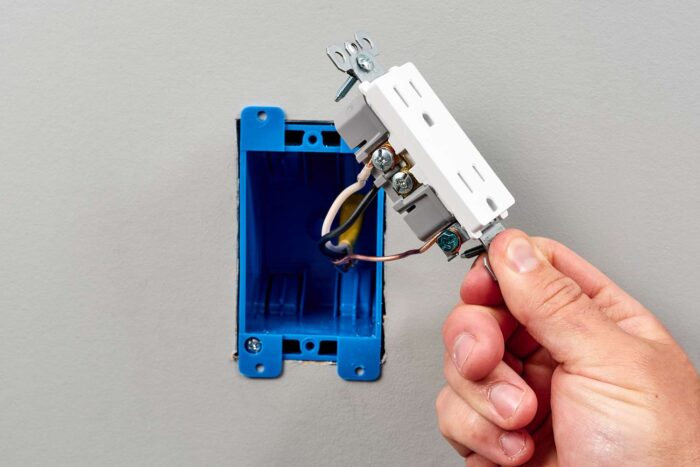
When an electrical outlet is not properly grounded or somehow damaged, it can cause an electric fire.
Over time, the wiring within the outlet and behind the socket wears. So, the wires start to lose and create a dangerous connection. Then it could spark and cause a fire.
2. Overloaded Circuits
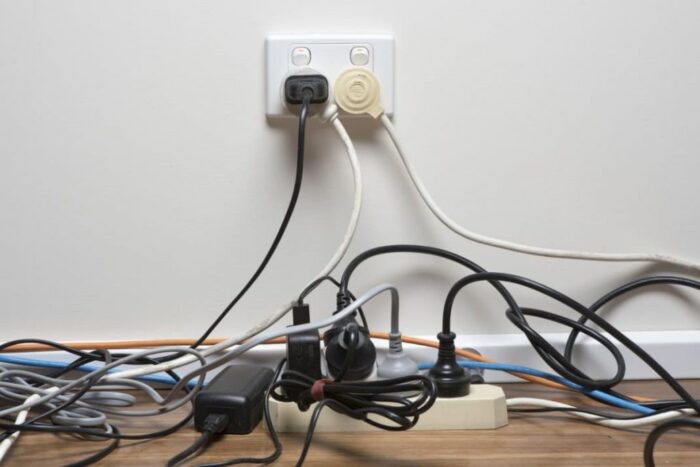
When you use extension cords carelessly, it increases the possibility of major fire hazards to your home. If you plug all the appliances such as home theatre, video game console, laptop, TV, and other gadgets into one extension cord, the socket will become unable to handle the excessive amount of power load. Thus, it can cause an electrical fire.
However, a circuit breaker can prevent the issue, though it may cause wires or other components to overheat.
When a circuit is overloaded, your house is at risk of fire.
So, never overload your circuits. Before installing any wire for a circuit breaker, you need to know the appropriate size of wire for each circuit. It will eventually help you prevent the overload. If you want to know more about the right size of wire, click here.
If you need additional outlets to meet your needs, call a reliable electrician to install the additional outlets.
3. Outdated Wiring
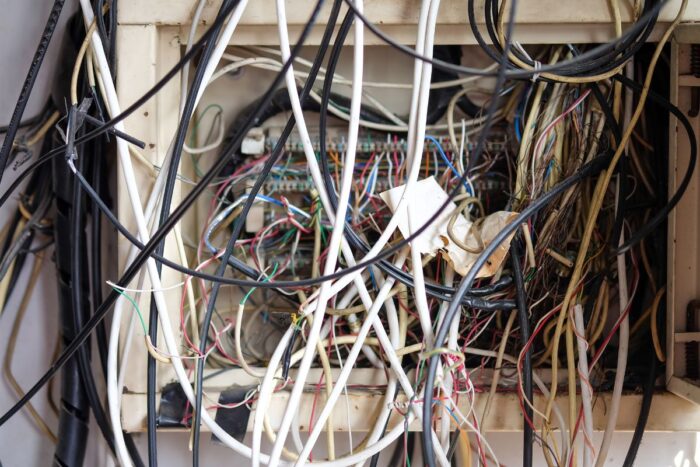
An old or outdated wiring system simply does not have the capacity to handle the power of all the modern and increased number of appliances like computers, refrigerators, televisions, kitchen appliances, etc.
That’s why older electrical wiring heats up quickly and causes fires. So, unfortunately, you may observe various signs of outdated electrical wiring, such as unexplained burning smells, electrical devices becoming extremely hot, the circuit breaker is overloaded, shocks from outlets or appliances, etc.
However, identifying whether the wiring is old or unsafe is difficult because the electrical work is mostly done behind the walls of your house. So, pay close attention to determine the hidden electrical issues.
4. Old or Faulty Appliances
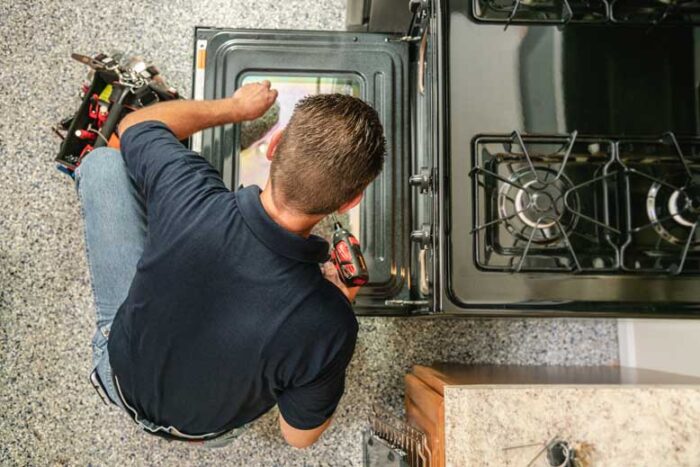
Outdated or damaged appliances can also lead to electrical fires. With the passage of time, appliances start losing their standards regarding safety regulations, material quality, and wattage usage.
Furthermore, outdated appliances that have broken cords and loose or worn wires can transfer heat to combustible surfaces like curtains, rugs, or floors. Thus, your old appliances, such as toasters, stoves, fridges, etc., all increase the potential risks of electrical fires.
So, always check the functionality of your appliances and inspect whether it gives you any sign of repair or replacement. Remember, it is always better to purchase modern appliances for ensuring your safety measures.
5. Light Fixtures
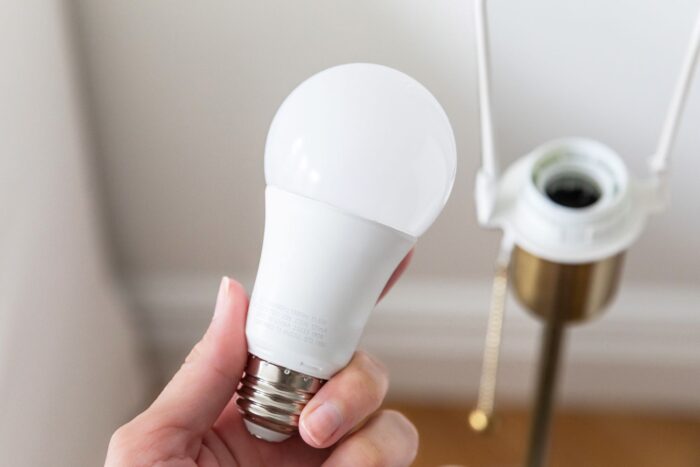
Another common reason that leads to electrical fires is lamps, light fixtures, and light bulbs. All the light bulbs do not work with every fixture.
Installing a high-wattage light bulb for any incompatible light fixture will definitely cause fires. That means when a light bulb of 100 watts is installed in a light fixture that can handle a 60 watts bulb, it can lead to fire instantly.
So, before installing any bulb, make sure to check the wattage guidelines for all the light fixtures and lamps at your home. And never go beyond this recommended amount. If the fixture lacks proper ventilation, it also results in electrical fires.
6. Portable Space Heater
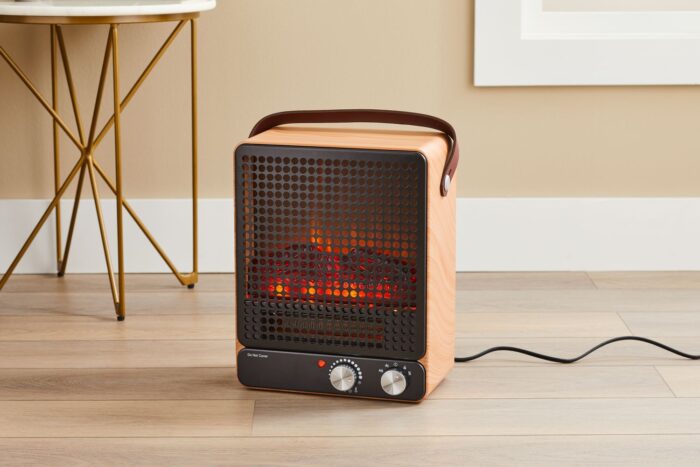
Placing a portable space heater close to any inflammable material, such as bedding, clothing, curtains, rugs, sofas, etc., is one of the most common ways to start an electrical fire.
A radiator-type heater is safe to use at home than a coil space heater. The reason is the radiator heater diffuses heat over the heater’s entire surface, whereas the coils of the coil-type radiators become extremely hot and ignite any inflammable surface easily.
In addition, never leave the heater on for a longer period of time, especially when you are sleeping or out of the home.
How to Prevent Electrical Fire?
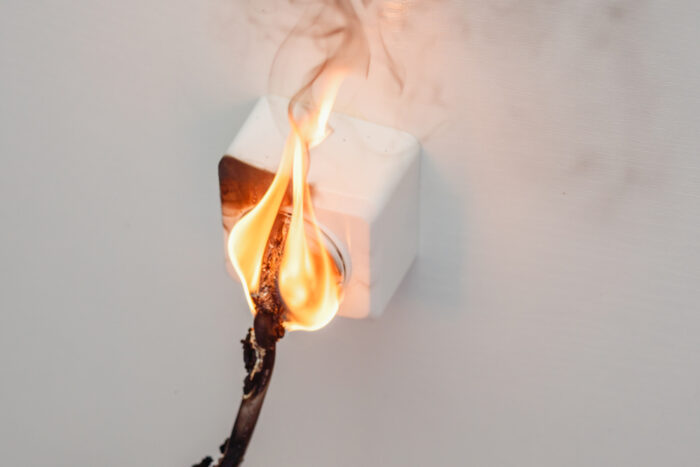
In order to prevent electrical fires at your home, you can follow the following guidelines –
- Purchase updated appliances that meet the quality materials and safety standards.
- Contact a qualified electrician to repair or replace all loose outlets. By tightening the wire nuts, you can also improve those connections on your own.
- Ensure all the light bulbs and devices are installed in the right electrical socket that matches the recommended wattage.
- Unplug all the small appliances, like the hair dryer, toaster, electric kettle, etc., when they are not in use.
- Get an expert to thoroughly audit your electrical wall outlets, wiring, external power panels, etc.
- Install a high-quality fire distinguisher and smoke detector alarm to reduce the possibility of electrical fires and minimize damages.
- Make sure you have installed Ground Fault Circuit Interrupters (GFCIs) in your electrical outlets. When a circuit is at risk or overloaded, GFCIs shut the system automatically and prevent fires.
- Pay close attention to inspecting your appliances. Check whether any device sounds strange or operates improperly. Also, check the wires or cords for excessive heat. If needed, repair or replace them as soon as possible.
- Follow the manufacturer’s instructions before using any electrical appliances.
- If the power cord or wire is worn out or frayed, repair it or consider replacing it.
- Place all the electrical cords under rugs, carpets, or furniture. Plus, keep them away from water.
- Don’t overload your home’s electrical circuits, as it causes the outlet to start an electrical fire.
- Keep your lighting fixtures away from any textile materials such as curtains, bedding, etc. Never cover the lamp with cloth or paper, as they can ignite and cause a fire.
- Use surge protectors for multiple plugs because it protects your appliance from the danger that a power surge can cause.
Final Thoughts
Anywhere you use it, electricity has the potential to cause a fire. Over time, electrical appliances become more susceptible to wear and tear.
Thus, things like faulty electrical wiring, electrical outlets, electric panels, etc., can start to malfunction, leading to a fire.
Knowing the signs of old, faulty, or poor electrical features, you can prevent starting fires in the first place.

